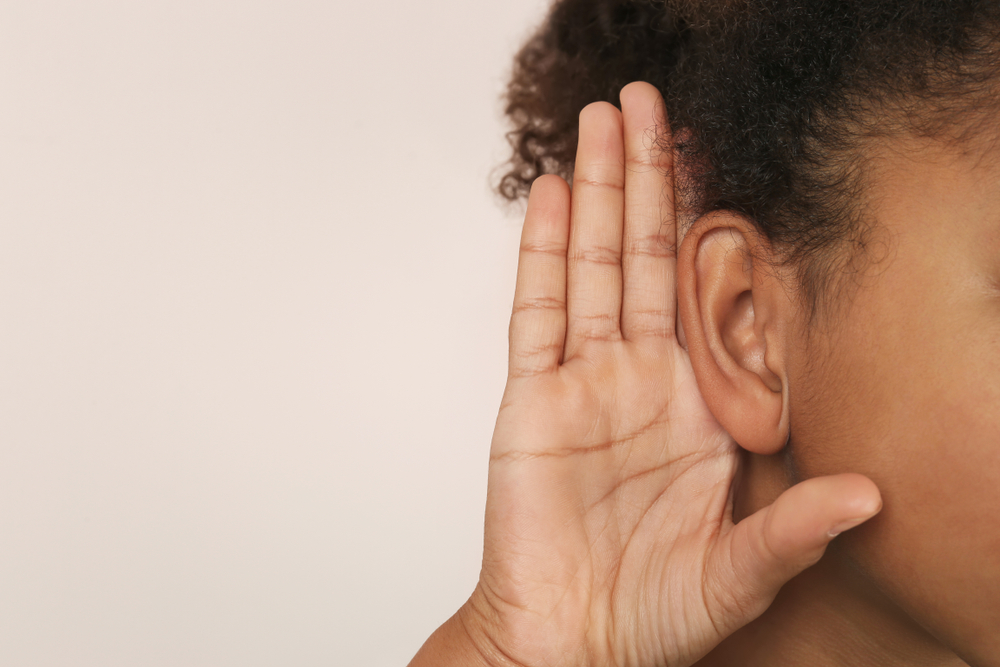You know that feeling when your phone battery hits 1% and you frantically search for a charger? Your eardrums are basically doing the same thing right now, except instead of a low battery warning, they’re sending you distress signals that you’re probably brushing off as no big deal.
Here’s the thing about eardrum damage, it doesn’t announce itself with a marching band. It creeps up on you like that friend who always “borrows” money but never pays it back. By the time you realize what’s happening, the damage might already be done. But your body is actually pretty good at dropping hints if you know what to look for.
That weird pressure feeling isn’t just from altitude
Ever feel like someone stuffed cotton balls in your ears, even when you’re nowhere near an airplane? That persistent feeling of fullness or pressure could be your eardrum’s way of waving a red flag. When your eardrum gets irritated or starts to weaken, it doesn’t bounce back to its normal position as easily. Think of it like a trampoline that’s lost some of its spring, it just sits there, creating that uncomfortable stuffed-up sensation.
This pressure feeling is especially concerning if it sticks around for days or keeps coming back. Your ears should feel clear and open most of the time, not like you’re permanently underwater at the deep end of a pool.
Random ringing that won’t quit
That high-pitched whine in your ears isn’t your smoke detector running low on batteries, it could be tinnitus, and it’s often one of the first signs that your eardrum is under stress. When your eardrum gets damaged, it can’t process sound waves properly anymore, which sometimes creates phantom noises that only you can hear.
The tricky part about tinnitus is that it can sound different for everyone. Some people hear ringing, others hear buzzing, clicking, or even what sounds like ocean waves. The key red flag is when these sounds become your constant companion, especially in quiet moments when they seem to get louder.
Your hearing is playing hide and seek
Have you noticed that conversations sound muffled lately, like everyone suddenly decided to whisper? Or maybe you find yourself constantly asking people to repeat themselves, even when they’re speaking at normal volume. This isn’t necessarily about getting older, it could be your damaged eardrum struggling to do its job.
A healthy eardrum vibrates perfectly when sound waves hit it, sending clear signals to your brain. When it’s damaged, those vibrations get wonky, making everything sound like you’re listening through a thick wall. You might notice this especially with higher-pitched sounds or when there’s background noise competing for your attention.
Sharp pains that come out of nowhere
Sudden, stabbing ear pain isn’t something you should tough out with a couple of aspirin. When your eardrum is damaged, even small changes in air pressure can cause significant discomfort. This might happen when you swallow, yawn, or even just turn your head quickly.
The pain from eardrum damage often feels different from a regular earache. Instead of a dull, constant throb, it tends to be sharp and sudden, like someone just poked you with a tiny needle. These pain episodes might be brief, but they’re your eardrum’s way of telling you something is seriously wrong.
Fluid where it shouldn’t be
Finding mysterious fluid leaking from your ear is never a good sign, but it’s especially concerning when it comes to eardrum damage. When your eardrum develops a tear or hole, fluid from behind the eardrum can escape into your ear canal. This drainage might be clear, bloody, or even pus-like, depending on what’s causing the damage.
Some people notice this fluid on their pillow in the morning or feel it trickling out during the day. Any fluid coming from your ear is essentially your body’s emergency broadcast system telling you to get medical attention immediately.
Balance problems that seem random
Your ears don’t just handle hearing, they’re also crucial for keeping you steady on your feet. When eardrum damage affects the delicate balance system in your inner ear, you might start feeling dizzy, unsteady, or like the room is spinning for no apparent reason.
These balance issues might be subtle at first. Maybe you feel slightly off-kilter when you stand up too quickly, or you find yourself reaching for walls or furniture more often than usual. Some people describe it as feeling like they’re on a boat that’s gently rocking, even when they’re standing on solid ground.
What’s actually happening inside your ear
Your eardrum is basically a thin membrane that separates your outer ear from your middle ear. When it’s working properly, it vibrates when sound waves hit it, transferring those vibrations to tiny bones in your middle ear that eventually send signals to your brain. When this membrane gets damaged, whether from loud noises, infections, injuries, or even aggressive ear cleaning, the whole system starts to malfunction.
The damage can range from tiny tears that might heal on their own to larger holes that require medical intervention. Either way, a damaged eardrum can’t do its job properly, which is why you experience all those weird symptoms that seem unrelated but are actually connected.
When to stop ignoring the signs
The bottom line is this, your ears are tougher than you think, but they’re not invincible. If you’re experiencing any combination of these symptoms, especially if they persist for more than a few days, it’s time to take them seriously. Eardrum damage isn’t something that typically gets better on its own, and ignoring it could lead to permanent hearing loss or chronic infections.
Your hearing is one of those things you don’t realize how much you depend on until it starts to fade. Pay attention to what your ears are telling you, because they’re usually right about when something needs attention.












